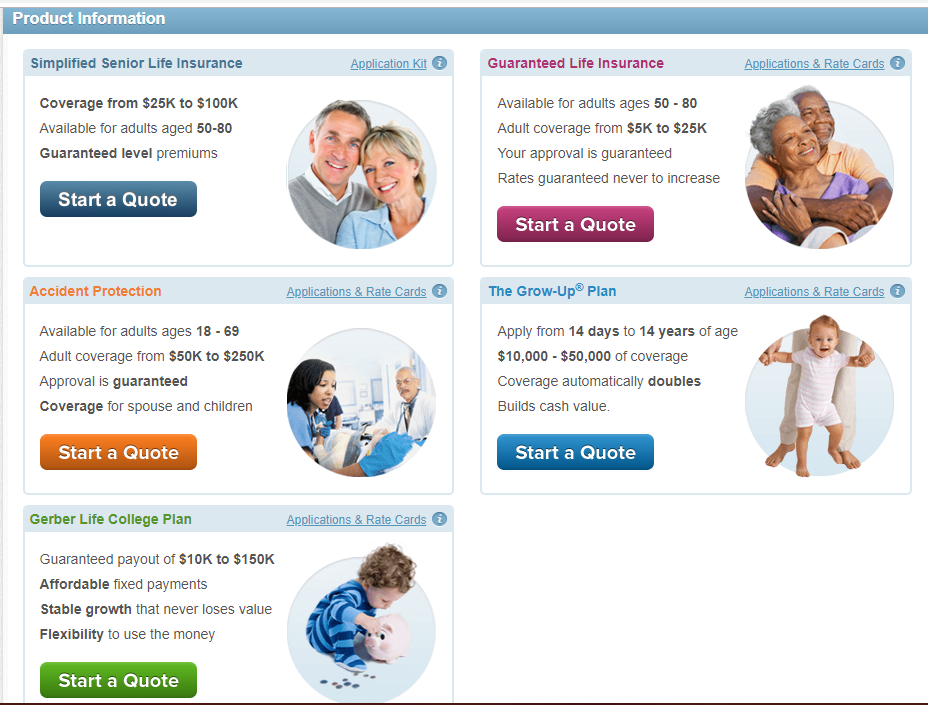The Best Type Of Life Insurance For You Right Now
By Amy Fontinelle | March 21, 2012 — 2:00 AM EDT

Many people don’t understand why they need life insurance, when they should buy it or what type of policy would best meet their needs. In this article, we’ll describe what type of life insurance will probably make the most sense for you at major milestones in your life.
Term Vs. Permanent Life Insurance
First, you need to understand the two basic types of life insurance: term and permanent.
Term life insurance provides a predetermined death benefit and covers you for a predetermined number of years, usually five to 30. The annual premiums are fixed and are based on your health and life expectancy at the time you apply for the policy.
Permanent life insurance combines a death benefit with a savings or investment account. The policy covers you for as long as you’re alive, even if you live to be 100. The premiums can be fixed or not, depending on the policy your purchase. Like term life insurance, the premiums are based on your health and medical history.
Permanent life insurance isn’t the best choice for most people. It’s several times as expensive as term life insurance for the same amount of coverage. While your policy does accumulate some cash value through its savings or investment component, which a term policy doesn’t have, you pay a hefty premium for this feature and for having a policy that will definitely pay out one day. A term policy will hopefully expire before you do.
An oft-touted benefit of the permanent policy’s cash account is that you can borrow against it. But, with the money, you could save by purchasing term insurance instead, you could amass your own nest egg so that you don’t need to borrow anything to pay for a large expense. Also, when you borrow against your permanent life insurance policy, you diminish the policy’s value and can defeat the purpose of even having life insurance.
Now that we’ve established that most people should buy term insurance, let’s look at when and why you should buy it and how much coverage you need.
Single with No Dependents
If no one depends on you financially, you usually don’t need life insurance. Your untimely death will certainly affect a lot of people, but it won’t put them in a financial bind in most cases. If your parents aren’t well-off, however, you might consider purchasing a small, inexpensive policy that would cover your funeral and burial costs.
Just Got Married
Getting married in and of itself doesn’t mean you need to purchase life insurance. However, events associated with getting married, like buying a house and having children, do mean that you’ll probably need it soon. Since life insurance gets more expensive as you get older, and since a decline in health could make your policy more expensive or make you uninsurable, you might want to go ahead and get life insurance when you get married if you’re young and healthy.
Just Bought a House
If you’ve just bought a house, among the flood of junk mail you’ll receive will be solicitations for mortgage protection insurance, also called mortgage life insurance. These come in the form of official-looking notices instructing, not asking, you to complete and return a short document requesting personal information such as the borrower and co-borrower‘s date of birth, sex, tobacco use, occupation, phone numbers, age and weight. Filling out this form does not usually mean that you’re purchasing an insurance policy; it just sets you up to receive sales phone calls to further discuss mortgage protection insurance and perhaps other financial products.
Mortgage protection insurance guards against the loss of income of the person, or people, responsible for paying the mortgage. This is to prevent one catastrophic event doesn’t lead to another like the loss of your family’s home. Though it is important to protect against the loss of a breadwinner‘s income when there are significant household expenses like a mortgage, you wouldn’t necessarily need to immediately pay off the mortgage if that person passed away, which is what mortgage protection insurance does. What you would really need is cash to cover all of your living expenses. Term life insurance will give you the cash to spend as you see fit.
The only reason to consider mortgage protection insurance instead of term life insurance is if you can’t meet the underwriting criteria for the latter. You may be able to get mortgage protection insurance without passing a medical exam. However, it’s also possible to get small amounts of term life insurance without a medical exam, so if you’re difficult to insure, a combination of both of these products might be right for you.
Baby on the Way
Perhaps the most important time to have life insurance is during the years when your children rely on you to provide for them. As soon as you know that a child will be entering the picture, you should get life insurance, if you don’t have it already. If you or your spouse passes away unexpectedly, the surviving spouse will bear the burden of not only earning an income, but also caring for the children.
At this stage in your life, you’ll want a substantial policy that will not only pay for 18 (or more) years of child-rearing expenses but also ongoing household expenses and perhaps college tuition. Make sure to buy enough insurance to allow your family to maintain the same standard of living.
If you already have life insurance at this stage, you should re-evaluate your policy because you might need to purchase more coverage.
Time to Retire
By the time you reach retirement age, your term policy probably will have run out. If you want life insurance when you’re older, it will be very expensive–possibly prohibitively expensive. That’s because your chances of dying, and the chance that the insurance company will have to pay a death benefit, increase substantially when you’re older. In other words, you become a riskier customer, and insurance companies will ask you to pay accordingly.
If you have a whole life policy, it will cover you until you die, but if you no longer need the policy, you may want to terminate it to save the monthly premiums and get full use of your cash value.
If you’ve planned carefully for retirement and avoided any major financial disasters in your working years, you shouldn’t need life insurance when you’re older. Your retirement accounts and the rest of your nest egg should provide for a surviving spouse’s needs. Your mortgage may be paid off, and your children will be old enough to support themselves.
The Bottom Line
Here’s one more tip: if you win the lottery, you might be able to cancel your life insurance policy. If you’re wealthy enough, you can insure yourself. Otherwise, you’ll want to re-evaluate your life insurance needs each time your life situation changes significantly to make sure that anyone who would be financially affected by your death will be taken care of.
Read more: The Best Type Of Life Insurance For You Right Now https://www.investopedia.com/financial-edge/0312/the-best-type-of-life-insurance-for-you-right-now.aspx#ixzz5W6v5Nmma
Follow us: Investopedia on Facebook
Life Insurances
Contracted with Several Insurance Companies
Protective
John Hancock
Minnesota Life
North American Company
Gerber
Mutual Of Omaha
Senior & Children Products

Life Insurances
As Independent Agency we represent Minnesota Life, Gerber and several Life Insurance Providers. Call or email us to begin the path where you are connected with an experienced Consultant who can help you select a Life Insurance Plan for you and your family.
